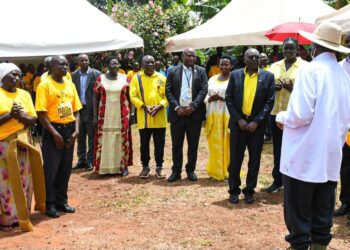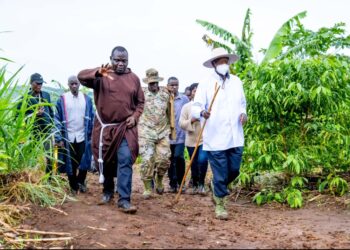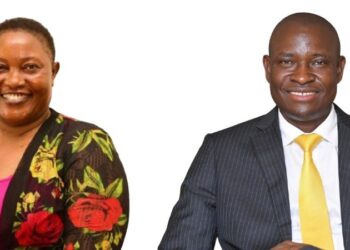A seismic wave of legal controversy has erupted in Uganda’s corridor of law following a scathing indictment of Justice Rosette Comfort Kania by the Uganda Law Society (ULS).
In a strongly worded statement released today, ULS Vice President Asiimwe Anthony accused Judge Kania of “breaking the law” in her decision to deny bail to Dr. Kizza Besigye and Hajji Obeid Lutale on April 11, 2025.
Asiimwe contends that Judge Kania disregarded established legal principles and precedents when she refused to grant bail, despite the accused allegedly fulfilling all the necessary legal requirements.
The court’s reasoning, based on speculation that the accused might interfere with ongoing investigations due to the gravity of the charges, and a paternalistic concern for their well-being by shielding them from the “temptation to interfere,” has been met with fierce criticism.
“Judge Kania’s decision is fundamentally flawed and impeachable,” declared Asiimwe Anthony in the statement. “She failed to cite any legal basis or precedent for her deviation from well-established principles governing bail applications. Judicial discretion, as our Supreme Court and Constitutional Court have repeatedly affirmed, is not an unfettered license for personal opinion; it must be exercised within the confines of the law.”
The ULS statement pointed to several key legal authorities, including the Constitutional Reference Uganda (DPP) v Col (Rtd) Dr Kiiza Besigye, Attorney General v Tumushabe, and Attorney General v Uganda Law Society, to underscore the established principles that Judge Kania allegedly ignored.
Furthermore, the ULS cited Supreme Court and Constitutional Court decisions in Aharikundira v Uganda, Sam Kuteesa v Attorney General, and Attorney General v Nakibuule to emphasize that judicial discretion is bound by legal frameworks.
The legal fraternity is now grappling with the implications of this bold accusation. The ULS asserts that Judge Kania’s actions constitute “judicial overreach,” where personal opinion superseded established legal principles, thereby undermining the rule of law and public trust in the judiciary.
“Judges who step outside the clear boundaries of the law fracture the very foundation upon which our society stands,” stated Asiimwe Anthony. “This compromises the pursuit of justice and erodes the public’s confidence in the impartiality of our courts.”
In a decisive move, the ULS announced its intention to invoke Executive Order RNB No 2 of 2024 and bring Judge Kania before the Judicial Service Commission to answer for her controversial decision. Simultaneously, the ULS urged Dr. Besigye’s legal team to immediately file a fresh bail application and approach the head of the Criminal Division to rectify what they deem a grave injustice.
The ULS also highlighted other pressing legal matters, calling upon the Civil Division of the High Court to expedite the stay of execution application filed by President Isaac Ssemakadde and other urgent cases, including their own habeas corpus application for Advocate Eron Kiiza. The statement concluded with a stark reminder: “Justice delayed is justice denied.”
This unprecedented public condemnation of a sitting judge by the ULS signals a potentially significant moment for Uganda’s legal landscape. The unfolding events in the Besigye bail case are being closely watched, with many anticipating a rigorous examination of judicial conduct and the delicate balance between judicial discretion and adherence to the rule of law.
The legal community now awaits the response of the Judicial Service Commission and the outcome of any fresh bail application, as the saga threatens to reshape the narrative of justice in Uganda.
Do you have a story in your community or an opinion to share with us: Email us at editorial@watchdoguganda.com













